
Folic Acid: A Double-Edged Sword?
The Surprising Impact of Folic Acid on Immune Function
Folic acid, a common supplement, is often recommended to prevent neural tube defects during pregnancy. However, recent research has revealed some unexpected consequences of excessive folic acid intake.
The Dark Side of Folic Acid
Studies have shown that a daily dose of 5 mg of folic acid for just 90 days can lead to:
- A 12-fold increase in unmetabolized folic acid (UMFA)
- A 25% reduction in the number of natural killer (NK) cells
- A 50% reduction in NK cell cytotoxicity
NK cells are crucial for a healthy immune system. They help fight infections and cancer cells. A decrease in NK cell function can compromise your body's ability to defend itself.
The Role of Diet in Folic Acid Metabolism
The impact of folic acid supplementation can be influenced by dietary factors.
Low-folate diet + folic acid supplement: Increased NK cell cytotoxicity
High-folate diet + folic acid supplement: Decreased NK cell cytotoxicity
Moreover, women with detectable levels of UMFA, especially those over 60, experience a more significant reduction in NK cell cytotoxicity.
What Does This Mean for You?
While folic acid is essential for certain health conditions, excessive intake can have negative consequences. It's crucial to:
Consult with a healthcare provider: Discuss your specific needs and potential risks before starting any supplement regimen.
Prioritize a folate-rich diet: Consume plenty of leafy green vegetables, legumes, and fortified foods.
Consider alternative forms of folate: Methylfolate, a more bioavailable form of folate, may be a better option for some individuals.
By understanding the potential downsides of folic acid and making informed choices, you can optimize your health and well-being.
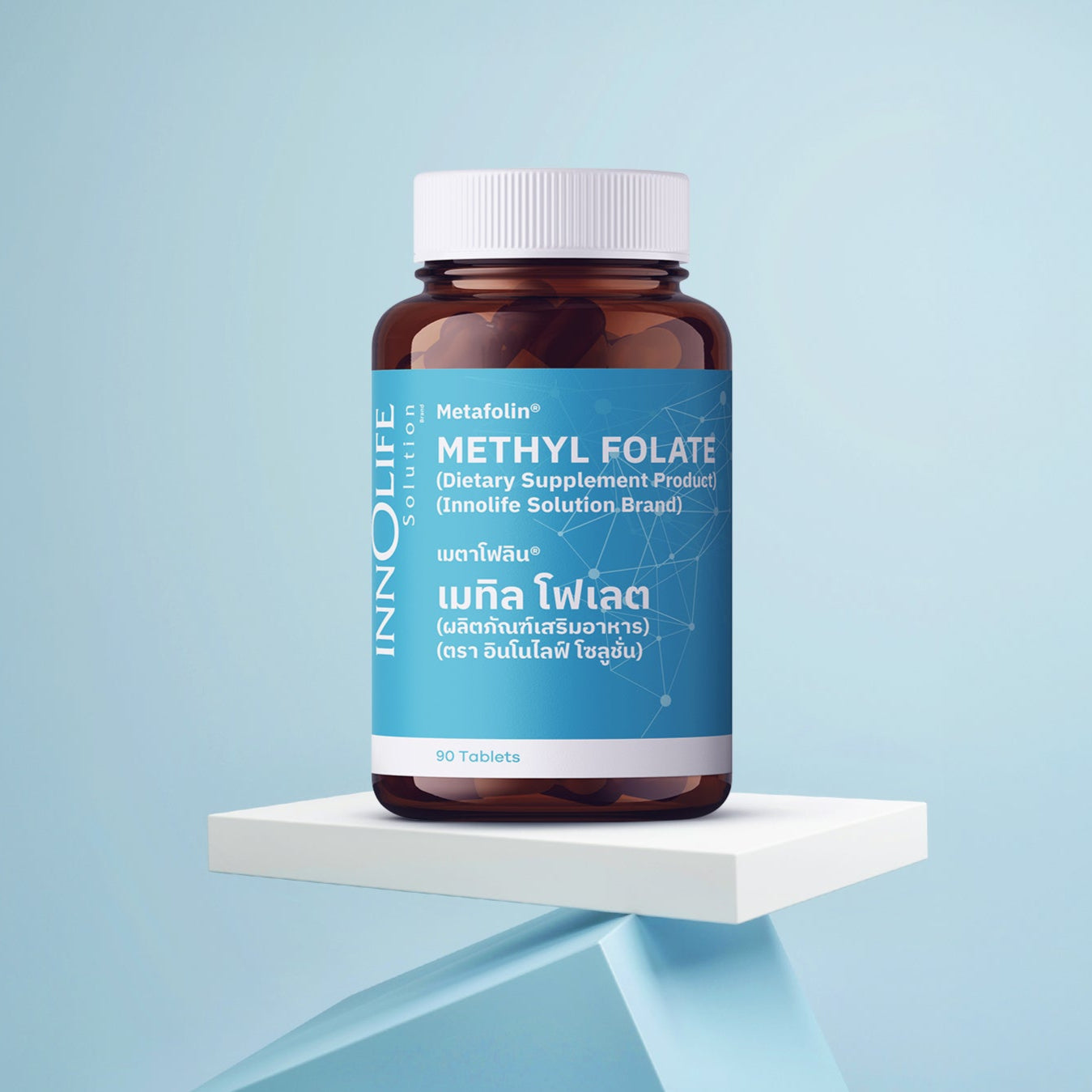
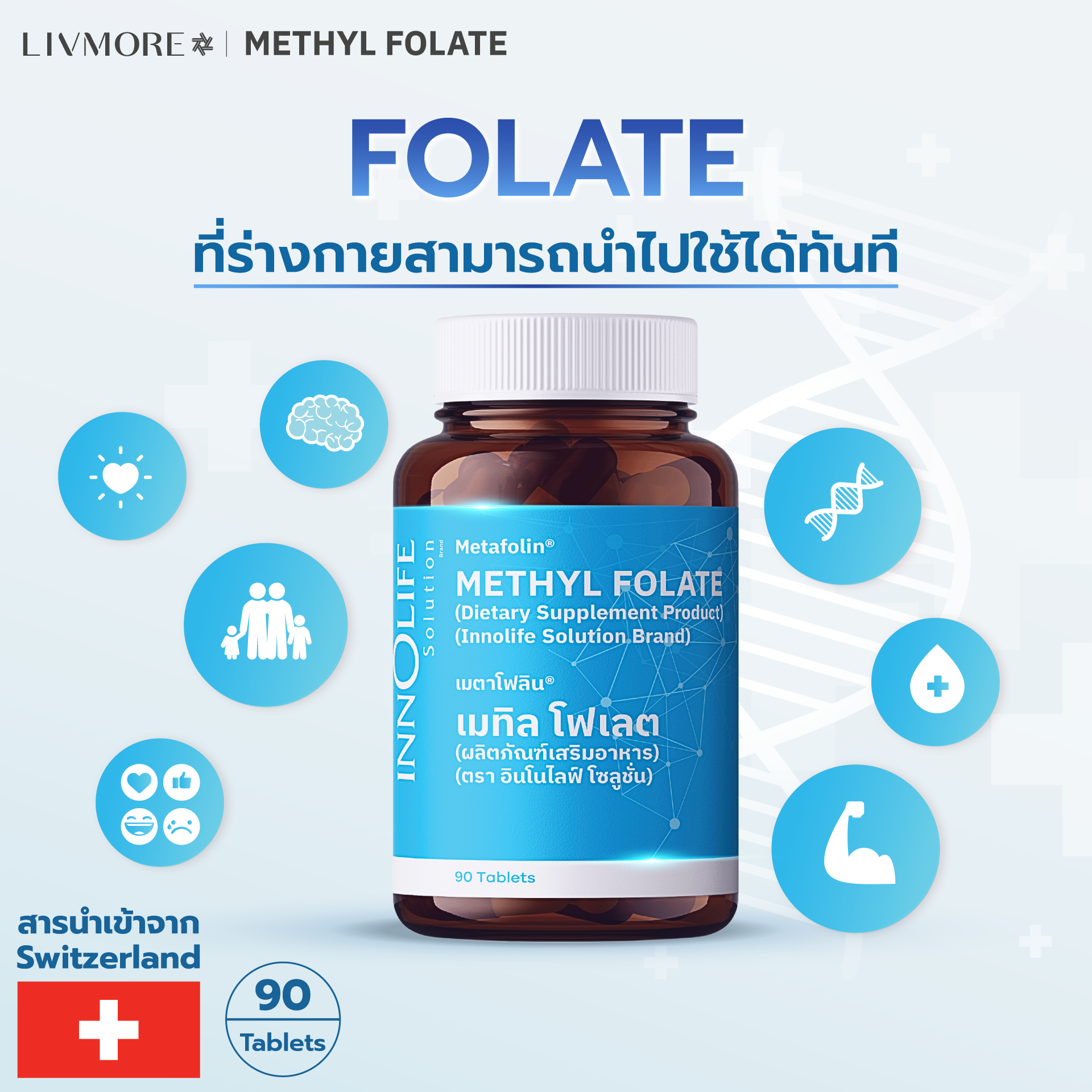
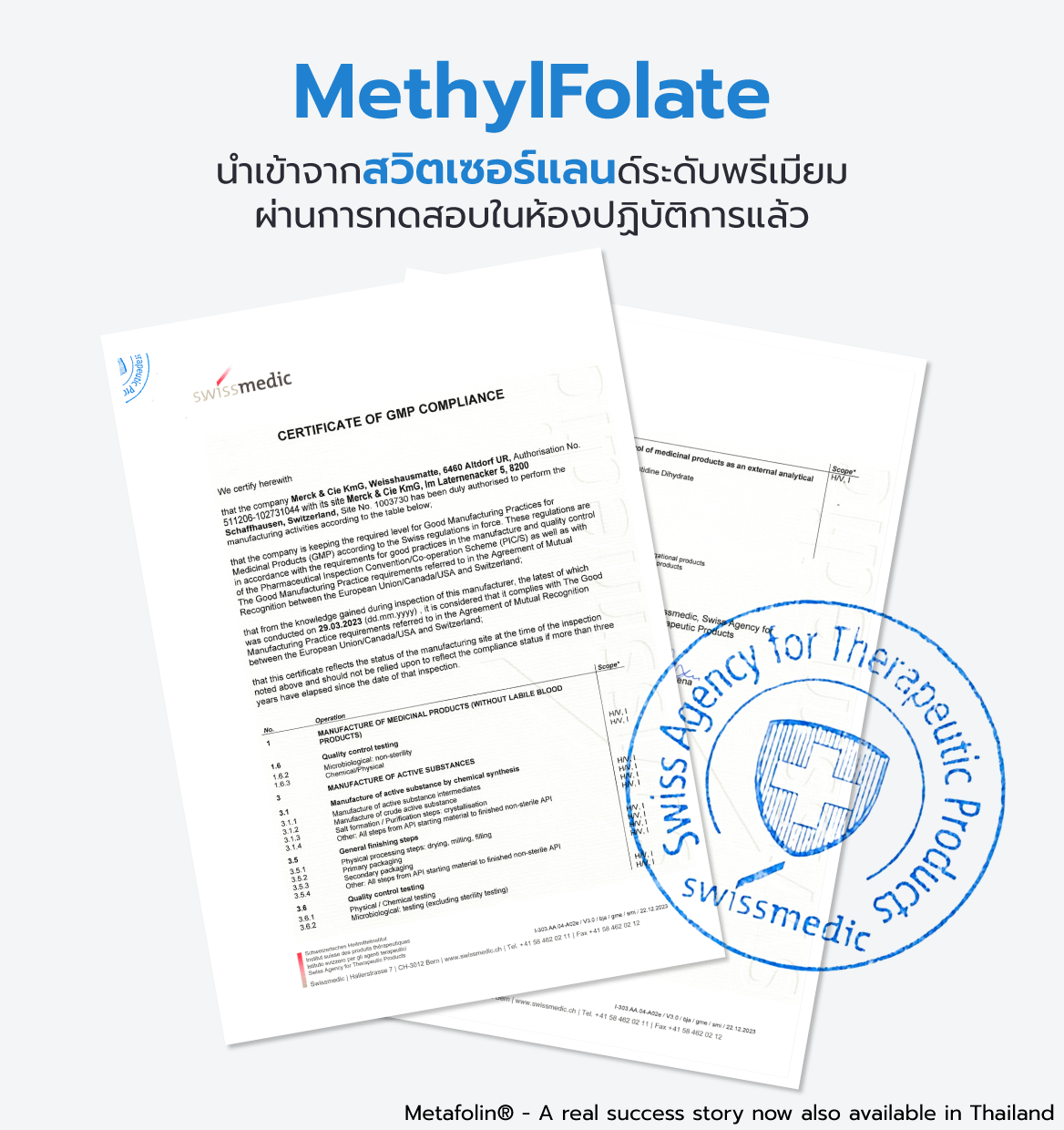
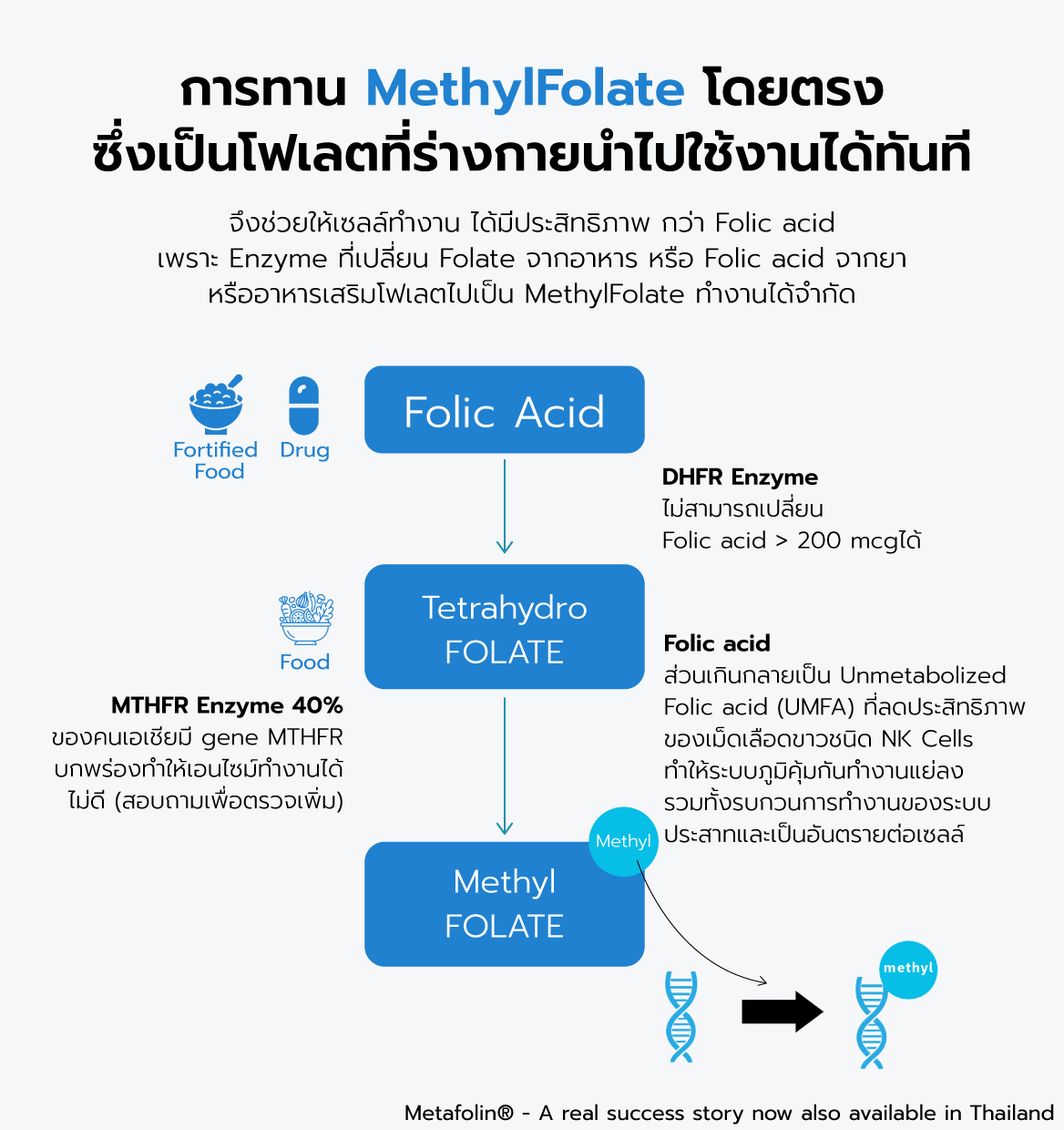
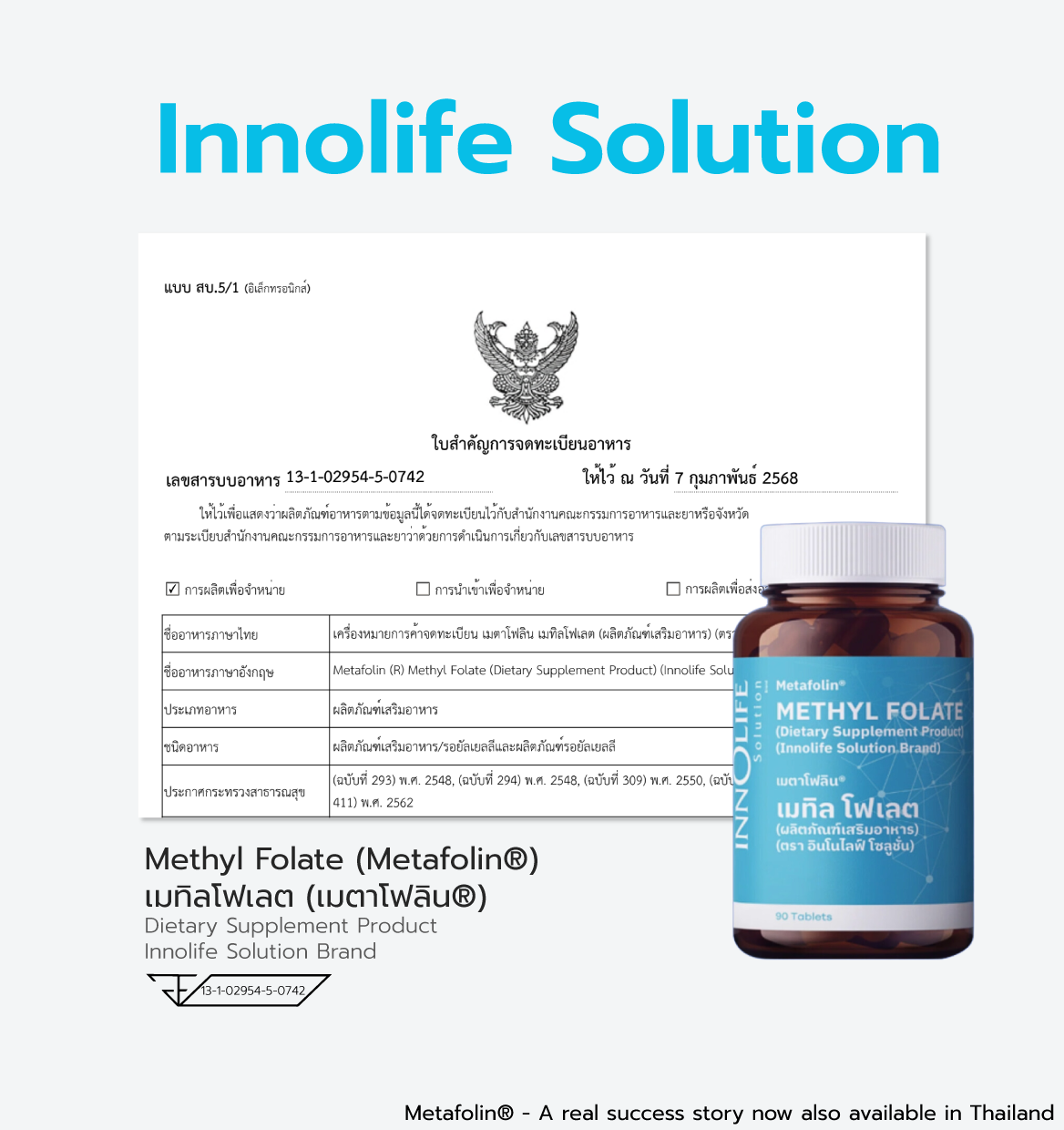
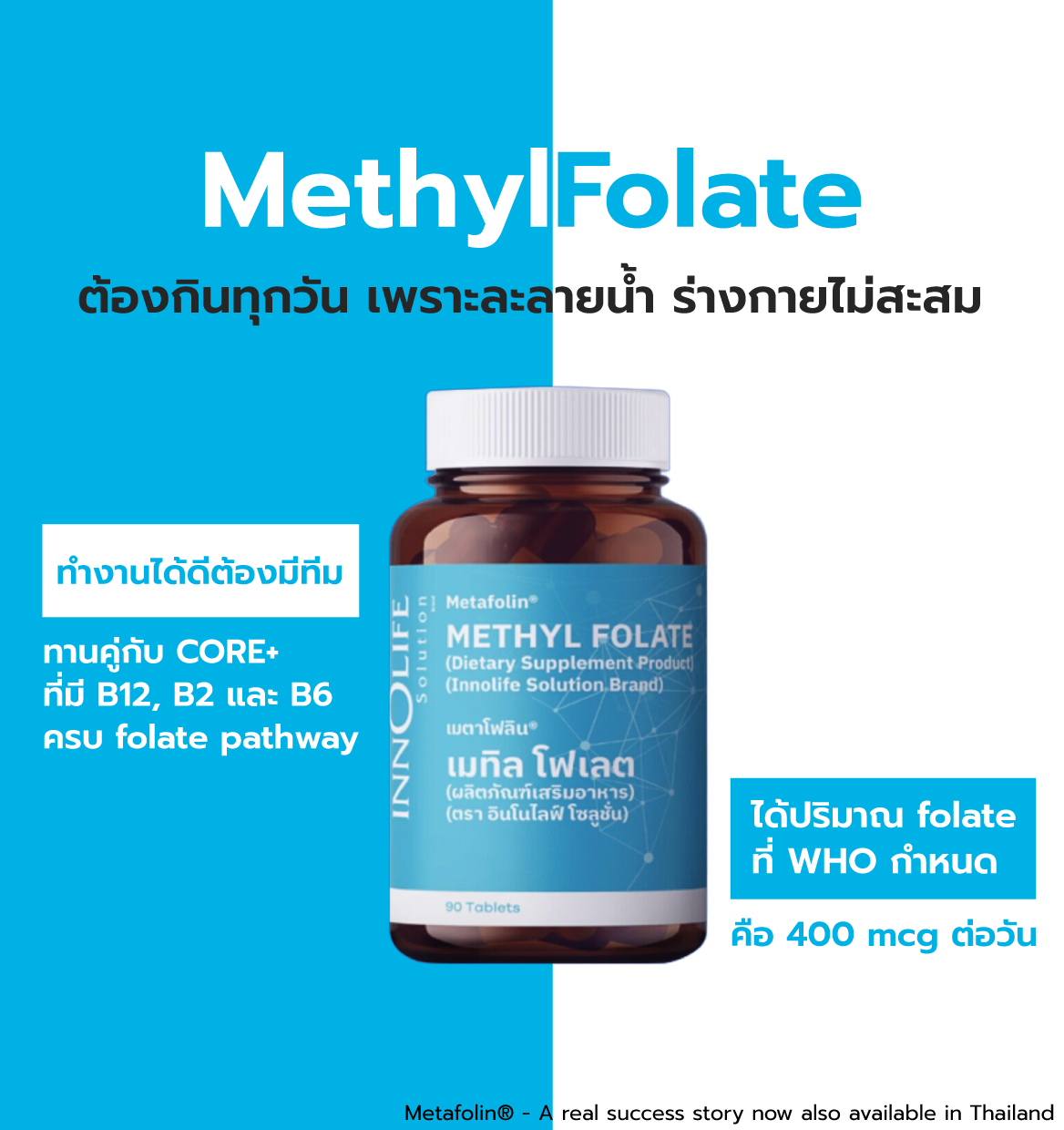
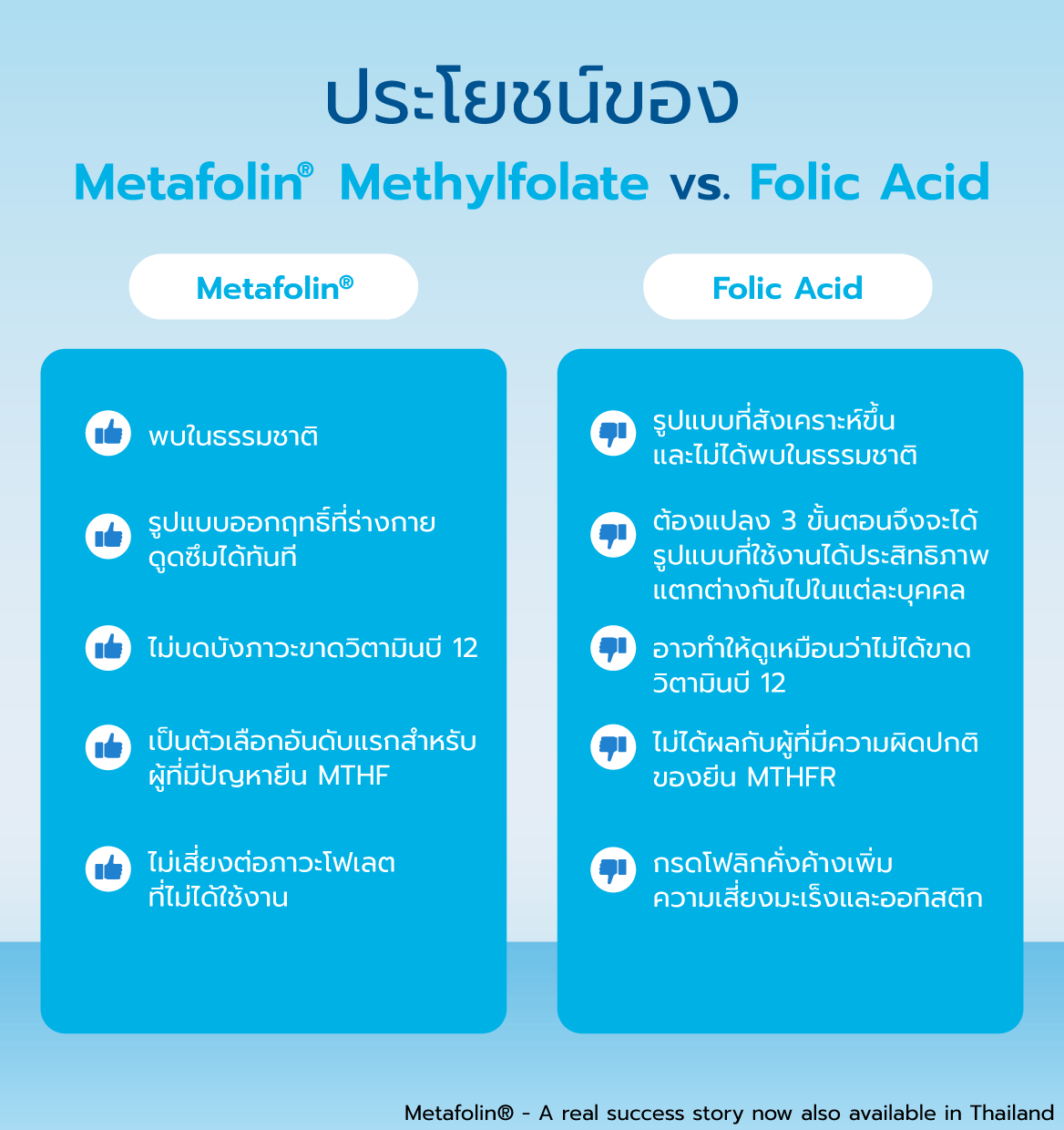
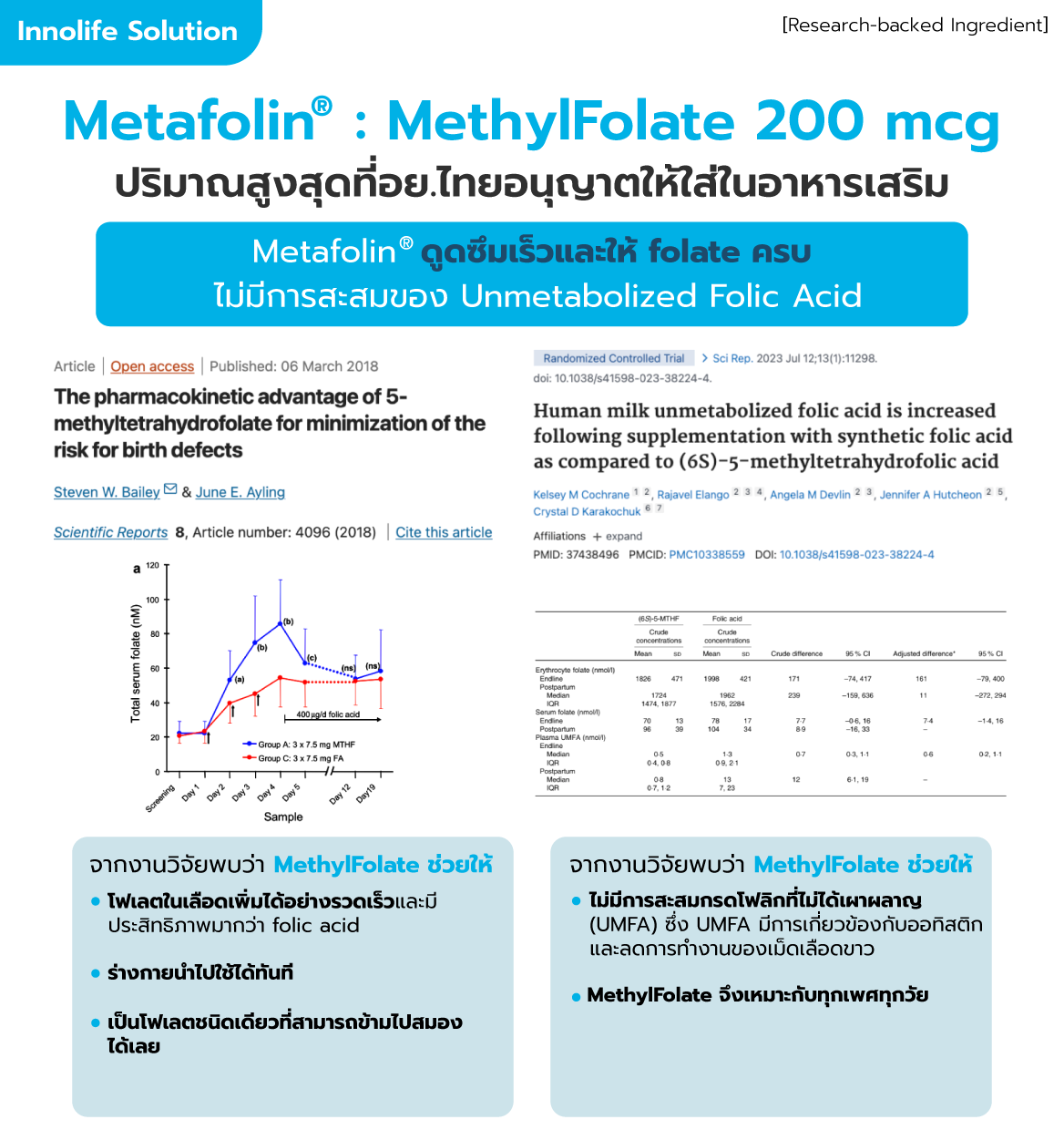
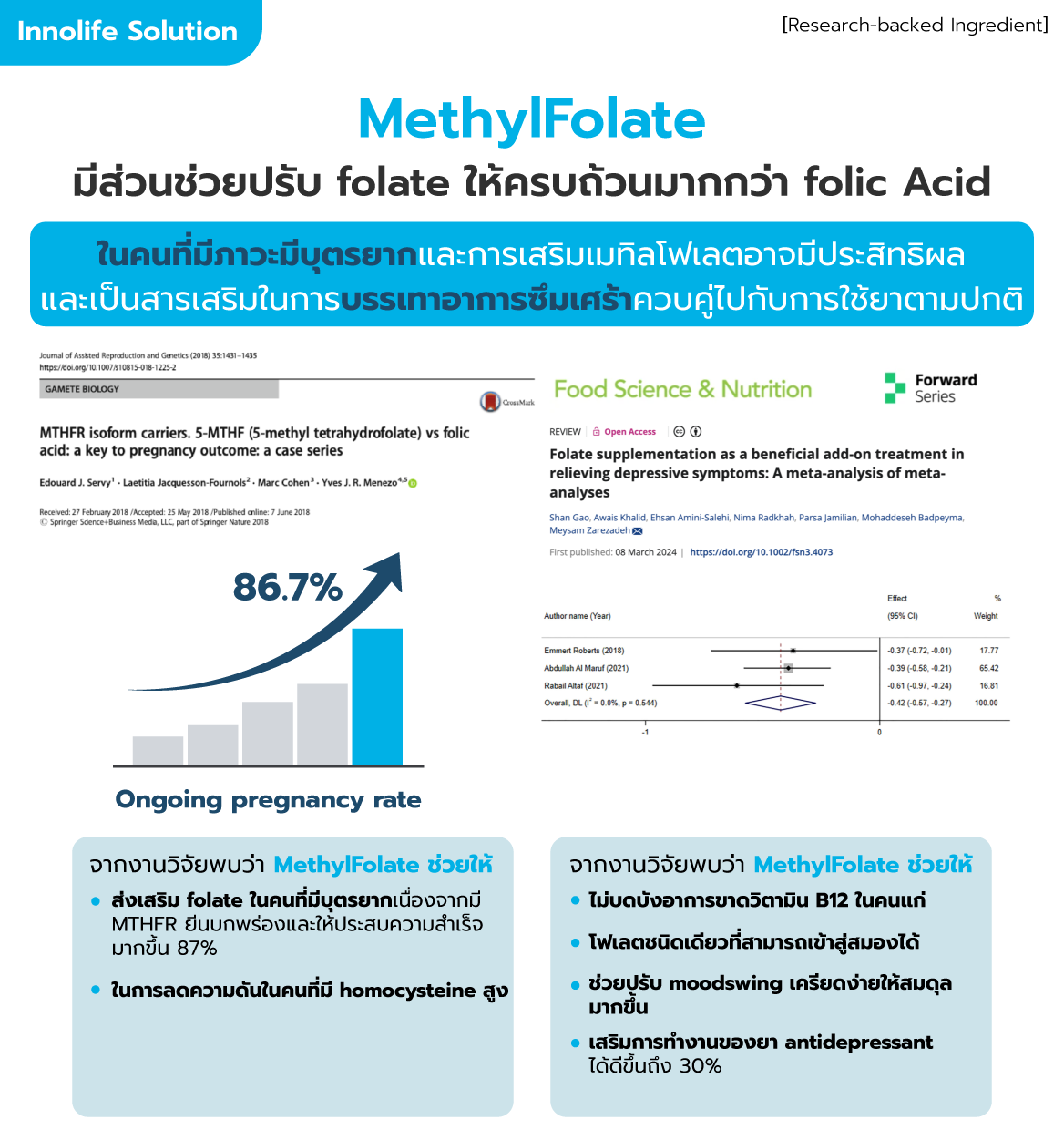

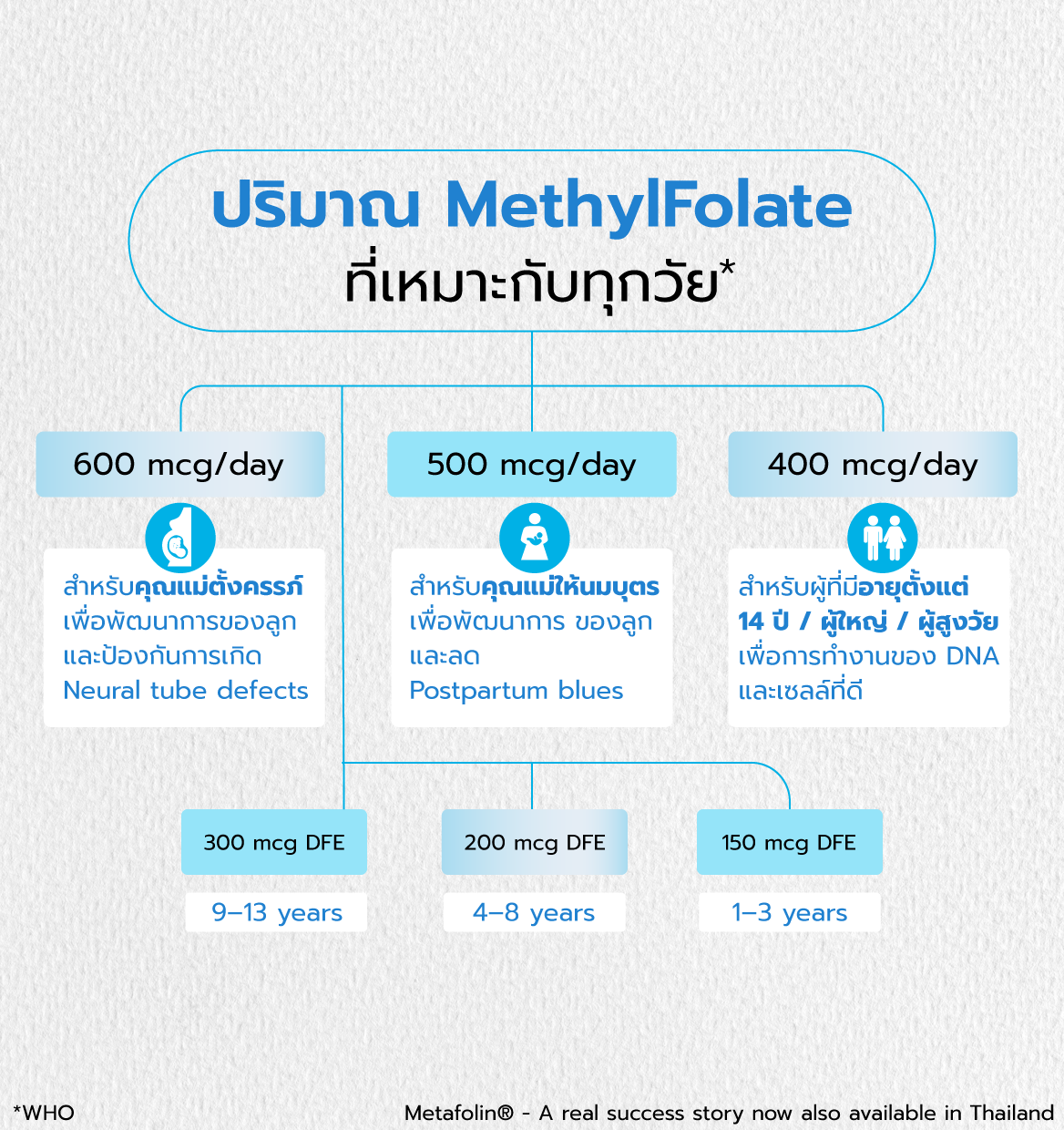












Unlock Your Health's Potential with Methylfolate
Experience the Power of Bioactive Folate
Clinical studies prove Methylfolate (Metafolin®) enhances vital organ function, promoting healthy aging from the inside out. Unlike regular folic acid, Methylfolate is a bioactive form of folate your body can use immediately, maximizing its benefits.
Key Benefits:
- Anti-Aging: Supports efficient cell function through optimal DNA methylation and gene expression.
- Brain Health: May help prevent dementia and Alzheimer's, and reduce stroke risk.
- Heart Health: Contributes to reducing heart disease and diabetes risk.
- Maternal & Infant Health: Crucial for preventing neural tube defects (NTDs) and reducing diabetes risk during pregnancy.
- Mood & Stress: Helps maintain balanced neurotransmitters (Dopamine and Adrenaline) for a more positive mood and reduced anxiety and stress.
The Methylfolate Advantage:
Methylfolate acts as a vital messenger, delivering methyl molecules to your DNA. This precise control over gene activation and deactivation ensures optimal cell function.
Because your body doesn't need to convert Methylfolate, it's significantly more effective than regular folic acid, especially considering that many people (especially 40% of Asians) have MTHFR gene variations that limit their ability to process folic acid efficiently.
Excess folic acid that your body can't process can lead to Unmetabolized Folic Acid (UMFA), which can negatively impact immune function and nervous system health.

Specifically for Expectant and Nursing Mothers:
Prioritize your health and your baby's development with our specially formulated Methylfolate supplement. This essential nutrient is crucial throughout preconception, pregnancy, and breastfeeding, periods when nutritional needs dramatically increase. Our formula is designed to meet these unique needs, supporting both mother and baby every step of the way.
Benefits at Each Stage:
- Preconception: Provides vital nutrients from the moment of conception.
- First Trimester: Supports healthy brain and spinal cord development with bioactive 5-MTHF.
- Third Trimester: Provides essential nutrients for continued fetal development and prepares mother and baby for childbirth.
- Postpartum & Breastfeeding: Supports increased dietary needs and reduces the risk of postpartum blues.
Recommended Daily Dosage (WHO Guidelines):
- Breastfeeding Mothers: 600 mcg/day (Supports baby's development and reduces postpartum blues)
- Pregnant Women: 500 mcg/day (Supports baby's development and prevents NTDs)
- Adults (14+): 400 mcg/day (For optimal DNA and cell function)
- Children (9-13): 300 mcg DFE
- Children (4-8): 200 mcg DFE
- Children (1-3): 150 mcg DFE
Directions for Use: Take 1 tablet daily (200 mcg) or as directed by your healthcare professional.
Order yours today and experience the difference!
